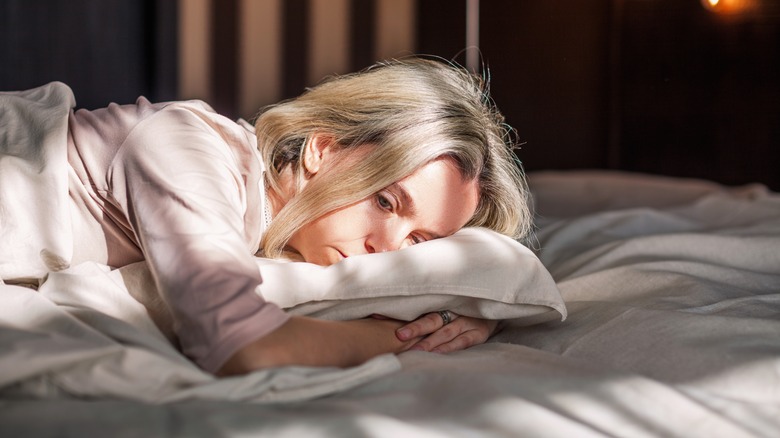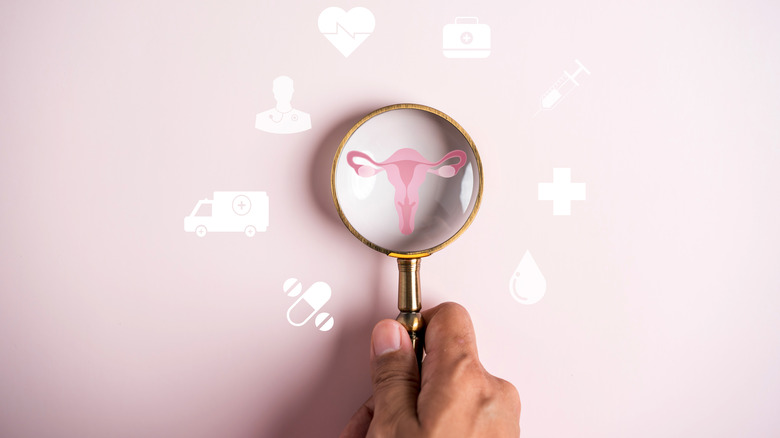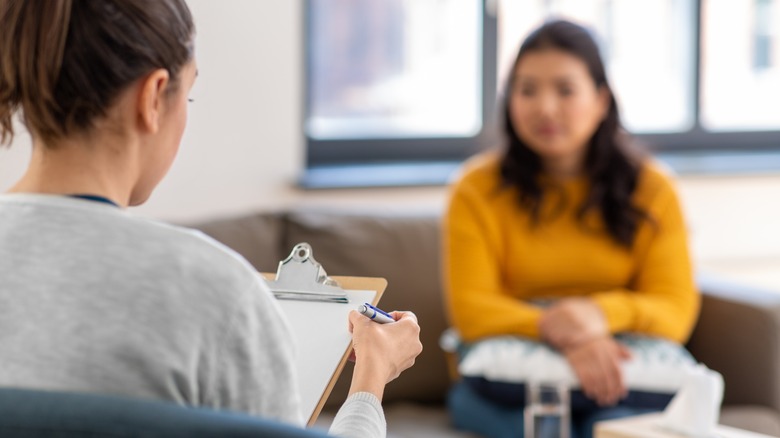Why Women Have More Sleep Problems Than Men
One of the most popular topics that health and wellness experts have emphasized over the past few years is the importance of sleep. If we listed all the ways that research has said sleep can improve one's well-being, this article would be endless. Better memory, improved mood, and a healthier metabolism are just a few of the perks that researchers have said 8-9 hours of deep sleep can provide. It's an offer that few people would turn down. But unfortunately, getting this amount of quality sleep is out of many people's reach.
Cleveland Clinic reports that 33% of adults worldwide struggle with symptoms of insomnia. For women, in particular, these stats are even more disheartening. A meta-analysis published by Frontiers in Psychiatry determined that women have a 58% higher chance of suffering from insomnia than men. Clinical Psychologist and behavioral sleep medicine specialist at UCLA Dr. Jennifer L. Martin, Ph.D. told MedicalNewsToday, "There are multiple factors — both biological and social — that account for higher rates of insomnia in women compared with men."
How hormonal fluctuations impact sleep for women
Menstruation, menopause, and pregnancy are all unique experiences for a woman's body. In addition, they are all conditions that can negatively impact an individual's quality of sleep. Michigan Medicine reports that sleep differences do not emerge between boys and girls until they have reached puberty. According to a study published by Sleep Med Res., it is most common for women to observe sleep disturbances during menstruation and the premenstrual period phases of their cycle.
In a cross-sectional study of over 7,000 pregnant women published by the Int J Environ Res Public Health, a little over 77% experienced sleep problems. And in a study published by BMC Pregnancy Childbirth, they found that out of 1,480 women who had given birth, 40% reported difficulty sleeping two years after their postpartum. Unfortunately, as women age, many will experience even more impaired sleep. An article published by Nat Sci Sleep states that 26% of premenopausal and postmenopausal women experience such severe symptoms of insomnia that they cannot carry out their day-to-day activities at full capacity.
Mental health problems contribute to poor sleep in women
One of the major factors which determine one's quality of sleep is the state of their mental health. According to the National Health Service, one of the most prevalent contributors to insomnia is "stress, anxiety, and depression." This considered, it is no surprise women are more likely to experience difficulty sleeping than men. Per the Anxiety & Depression Association of America, women are about twice as likely to be diagnosed with an anxiety disorder as men.
Dr. Kristen Casey, a clinical psychologist specializing in insomnia, explained to Sleepopolis that "When we're in a heightened arousal state, which means we have a higher propensity to experience anxiety at night, it does inhibit falling asleep, like initiating sleep, and it also inhibits maintaining sleep." Today there is a plethora of advice, tools, and sleep meditations available to help women get the quality stage three sleep they need and deserve. However, if you are experiencing persistent problems sleeping, it is recommended you consult a medical professional.


